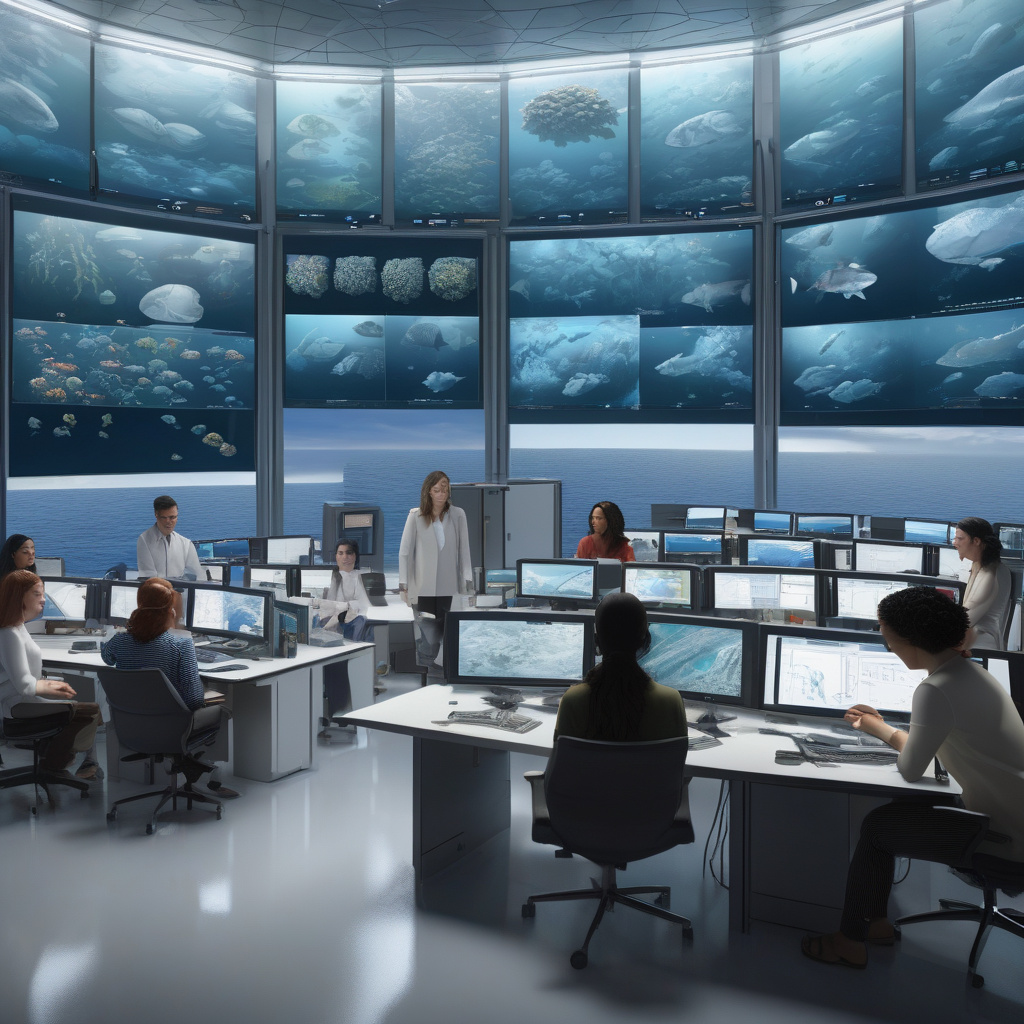AI Tool Could Revolutionize Marine Forecasting Methods
UK researchers have recently unveiled a groundbreaking low-cost AI model that has the potential to revolutionize real-time ocean forecasting. This innovative tool harnesses the power of artificial intelligence to provide more accurate and timely predictions, offering a glimpse into the future of marine forecasting.
Traditional methods of marine forecasting often rely on complex mathematical models and historical data to predict ocean conditions. While these methods have been effective to a certain extent, they are often limited in their ability to account for real-time changes and dynamic environmental factors. This is where the new AI tool comes into play, offering a more adaptive and responsive approach to marine forecasting.
By leveraging machine learning algorithms, the AI model can analyze vast amounts of data in real-time, enabling it to quickly adapt to changing ocean conditions. This means that researchers and forecasters can receive up-to-date information and predictions, allowing for more informed decision-making and better preparation for potential risks.
One of the key advantages of this AI tool is its low cost, making it accessible to a wider range of organizations and institutions involved in marine forecasting. By democratizing access to advanced forecasting technology, the tool has the potential to improve safety at sea, optimize shipping routes, and enhance overall environmental monitoring efforts.
Moreover, the AI model’s ability to learn and improve over time sets it apart from traditional forecasting methods. By continuously analyzing new data and refining its predictions, the tool can adapt to evolving environmental conditions and provide increasingly accurate forecasts.
The implications of this innovation extend beyond marine forecasting, with potential applications in various industries such as renewable energy, aquaculture, and coastal development. For example, offshore wind farms could benefit from more precise forecasting of ocean conditions to optimize energy production and ensure operational efficiency.
In conclusion, the unveiling of this low-cost AI model represents a significant milestone in the field of marine forecasting. By combining the power of artificial intelligence with real-time data analysis, researchers have opened up new possibilities for improving the accuracy, timeliness, and accessibility of ocean predictions. As we look towards the future, it is clear that AI will play a crucial role in transforming the way we monitor and understand our oceans.
marine forecasting, AI tool, UK researchers, real-time predictions, machine learning












